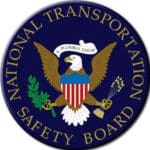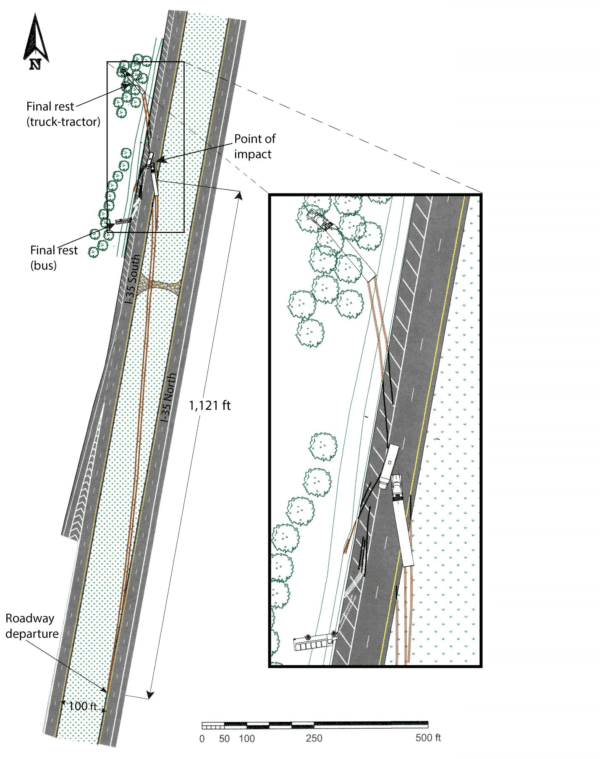On a September evening in 2014, a tractor-trailer going over 70 mph on an Oklahoma highway veered out of the left lane.
The truck driver was neither braking nor steering as the semi-truck crossed the median.
That semi-truck traveled about 1100 feet before it collided with a bus on the other side of the highway.

The bus was carrying about 15 softball players from a Texas college.
The bus and truck crash killed four students. Everyone else was injured, including both drivers.
Due to the severity of the crash and the number of fatalities, the National Transportation Safety Board (NTSB) conducted an independent and extensive crash investigation.
Read the initial report of the investigation, released in November 2015.

Driving under the influence of synthetic marijuana
“The truck driver’s lack of corrective actions following the roadway departure was due to incapacitation, likely from the use of synthetic cannabinoids”
– NTSB report
Obviously, it’s very dangerous for a trucker to be driving an 80,000 lb. vehicle on a public highway under the influence of any drugs.
That’s why there are federal rules and laws that require companies to randomly drug-test employees with commercial drivers licenses—like truck drivers—for any of these drugs:
- Marijuana
- Cocaine
- Opiates
- Amphetamines and methamphetamines
- Phencyclidine (PCP)
Trucker drug test doesn’t include synthetic marijuana
Because the usual trucker drug test doesn’t include it, that doesn’t make it legal for truckers to use it.
Synthetic marijuana is considered an “impairing substance,” and regulated under the Controlled Substances Act.
There’s a big gap between drug-testing regulation, and the ban on the use of impairing substances while driving.
In this case, the driver who caused the crash would’ve passed the trucker drug test. The NTSB’s investigation report pointed out this discrepancy.
Following the investigation, the NTSB recommended to FMCSA and trucking carriers:
- Study the prevalence of trucker use of synthetic cannabinoids. Since the required random drug tests don’t check for these substances, there is no data on their use.
- Determine if and how to reduce the use. Would adding synthetic marijuana to the standard drug test help?
- Address truck driver use of ANY impairing substances that aren’t being tested. Truckers have to avoid any substance that impairs cognition or reflexes. It doesn’t matter if it is legal or illegal, tested or untested.
Four college students died. A dozen other people were hurt.
Hopefully, this tragedy will prompt the government and the trucking industry to fix the massive hole in the trucker drug test.


